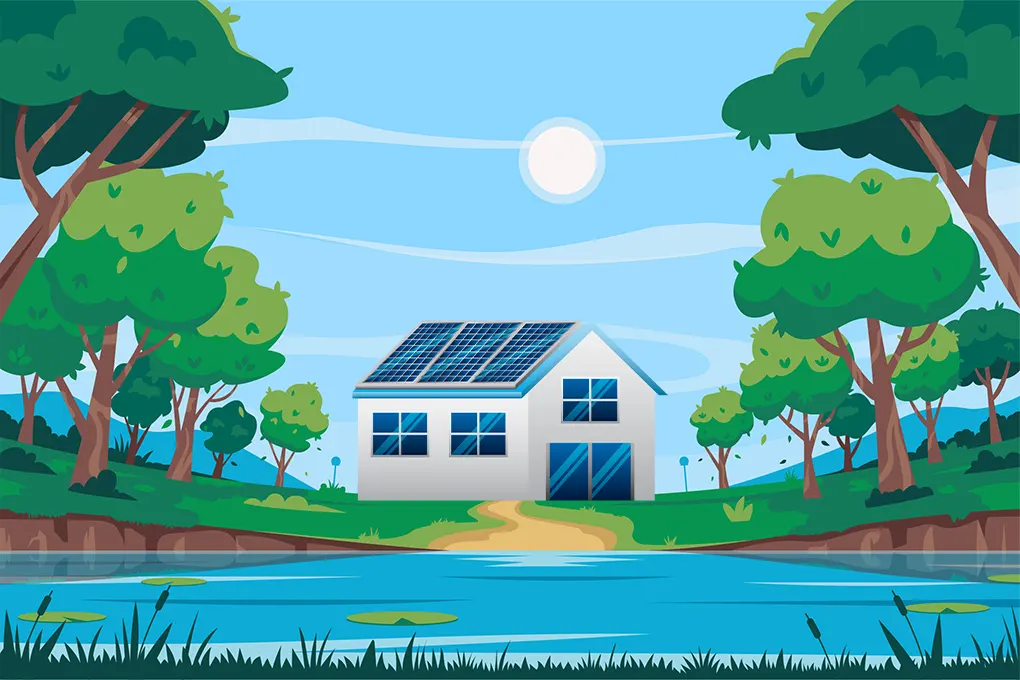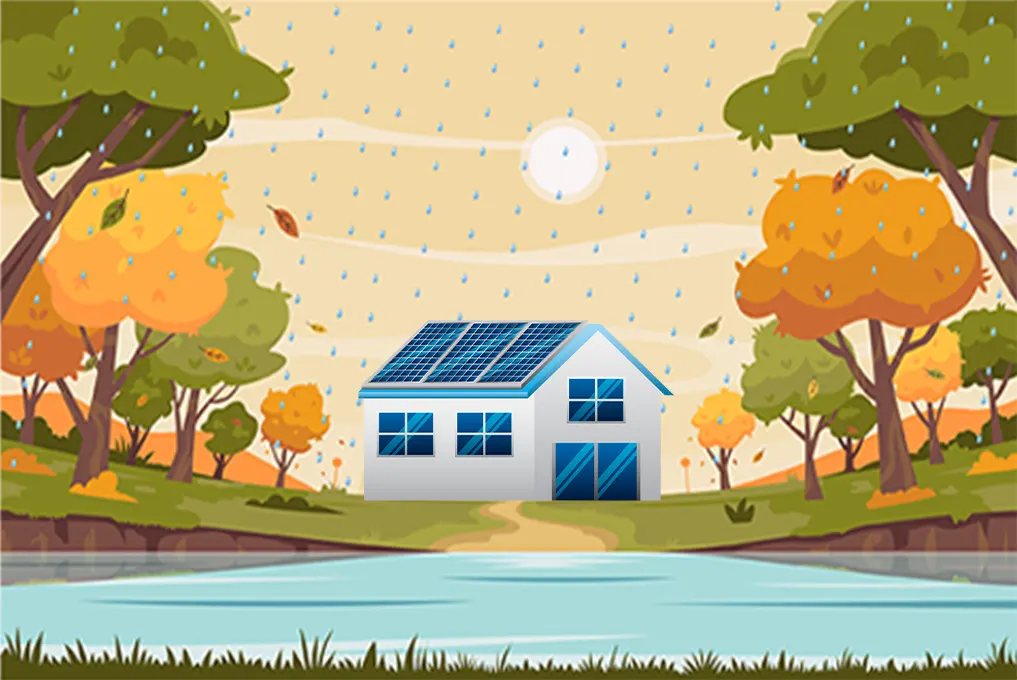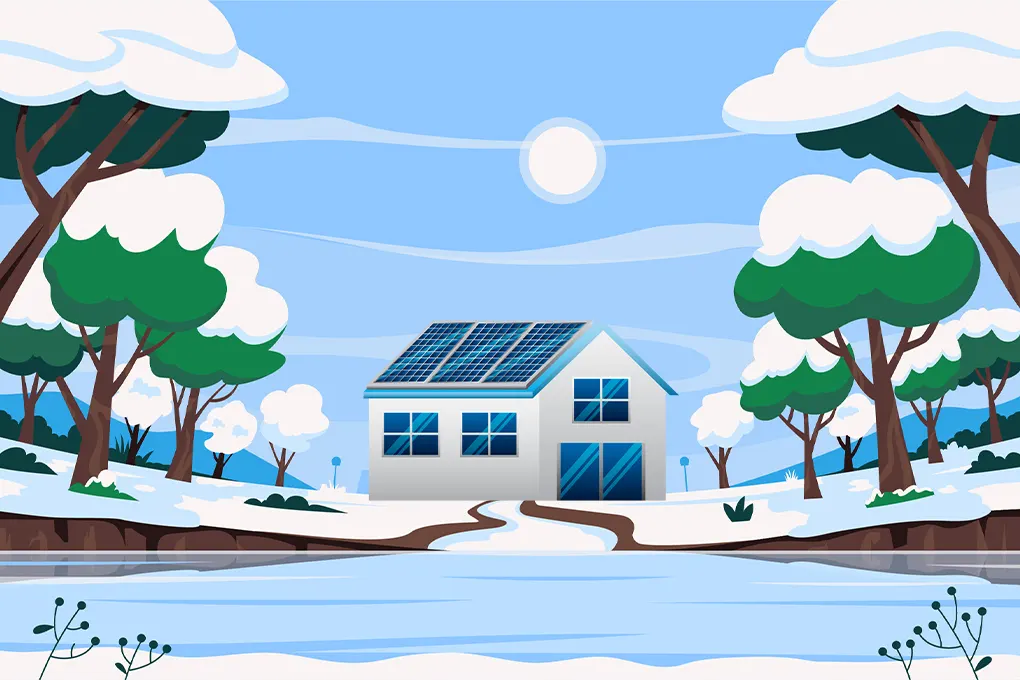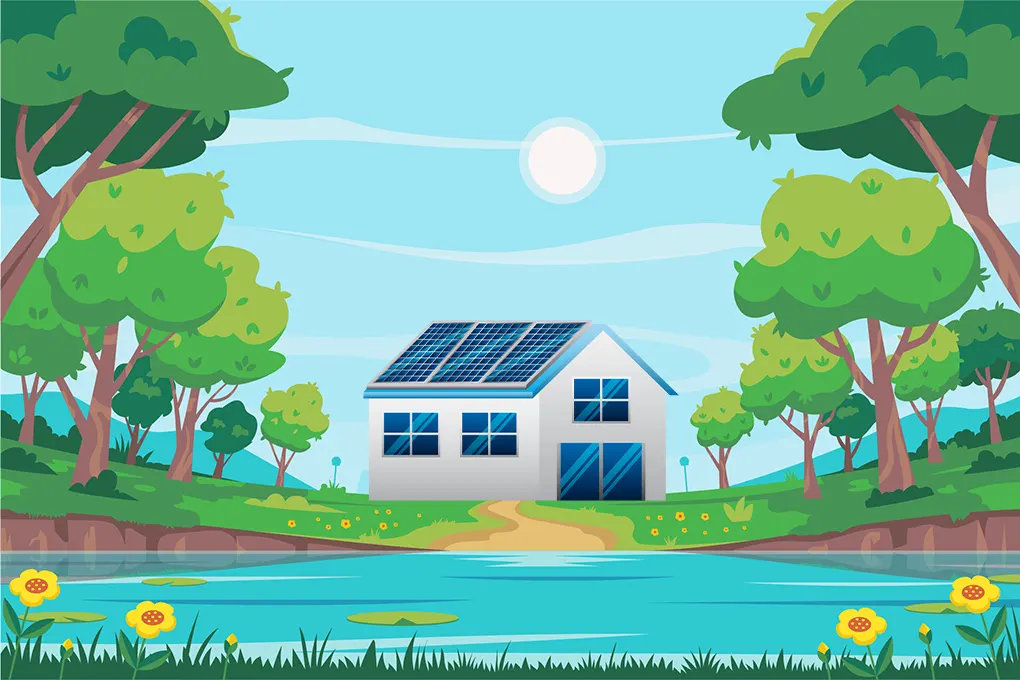
Unveiling the Seasonal Shifts
Discover the Impact of Seasonal Changes on Solar Energy Efficiency
Solar panels are a popular source of renewable energy, but their efficiency can be affected by seasonal variations. Understanding how seasonal variations affect the working of solar panels is important for those who rely on solar power to generate electricity.
Solar panels convert sunlight into electricity through the photovoltaic effect. The efficiency of solar panels is affected by several factors, including the angle and intensity of sunlight, temperature, and humidity. These factors are influenced by seasonal variations.

Summer Season (March to June):
During the summer months, the temperature in India can reach up to 45 degrees Celsius. The high temperature can cause a drop in the efficiency of solar panels, as the performance of the photovoltaic (PV) cells decreases with increasing temperature. This drop in efficiency is due to the thermal losses that occur within the solar panel. The electrical output of a solar panel decreases by 0.5% for every degree Celsius increase in temperature above 25 degrees Celsius. Therefore, it is essential to install solar panels with proper ventilation and cooling systems to mitigate the impact of high temperatures.

Monsoon Season (July to September):
The monsoon season brings heavy rainfall and cloudy skies, which can have a significant impact on the performance of solar panels. During the monsoon season, the output of solar panels can decrease by up to 30% due to reduced sunlight. Additionally, the accumulation of dirt and debris on the solar panel surface can further reduce their efficiency. Regular cleaning and maintenance of the panels are essential during this season to ensure optimal performance.

Winter Season (October to February):
During the winter months, the weather is generally dry and clear, which results in high solar radiation and good performance of solar panels. The lower temperature during this season also helps to improve the efficiency of solar panels. However, it is essential to keep the panels free from frost and snow, as they can obstruct sunlight and reduce output.

Spring and Fall Seasons
During the spring and fall seasons, the angle and intensity of sunlight are moderate, which results in moderate output from solar panels. The temperature is also moderate, which means that solar panels operate efficiently. However, these seasons can be unpredictable in terms of weather patterns, which can affect the output from solar panels.
Effects of Seasonal Variations on Solar Panel Efficiency
Seasonal variations can have a significant impact on the efficiency of solar panels. For example, during the winter season, solar panels may produce only 50-75% of the electricity they produce during the summer season. Similarly, during the spring and fall seasons, the output from solar panels may be unpredictable due to changes in weather patterns.
To ensure that solar panels operate efficiently throughout the year, it is important to consider the impact of seasonal variations when installing solar panels. This includes selecting a location that receives sufficient sunlight, shade, and ventilation, as well as selecting solar panels that are designed to operate efficiently in a range of temperatures and weather conditions.
In conclusion, seasonal variations can have a significant impact on the efficiency of solar panels. It is important to consider the impact of seasonal variations when installing solar panels and to select solar panels that are designed to operate efficiently in a range of temperatures and weather conditions. By doing so, it is possible to generate clean and renewable energy throughout the year.
While solar energy can be a "treat" for most months, there are certain months when it can be a "treak" instead.
During the summer months, solar energy can be a treat, as there are more hours of daylight and the sun is higher in the sky. This means that solar panels can generate more electricity, making it a great time to rely on solar power. Additionally, during the summer, air conditioning units typically run more often, which can increase the demand for electricity. The increased demand for electricity can be met by the additional energy generated by solar panels.
However, during the winter months, solar energy can be a treak. The days are shorter, and the sun is lower in the sky, which means that solar panels generate less electricity. Additionally, during the winter months, heating systems run more often, which can increase the demand for electricity. This can result in a higher reliance on non-renewable sources of energy to meet the increased demand.
Moreover, during the rainy season or cloudy days, solar energy can also be a treak as the amount of sunlight that reaches the solar panels is significantly reduced. This can result in a decrease in the amount of energy generated, making it a less reliable source of power during those times.
In summary, solar energy can be a treat for most months, especially during the summer, but during the winter months or rainy days, it can be a treak. It's essential to consider the seasonal variations and weather conditions when deciding to rely on solar power.